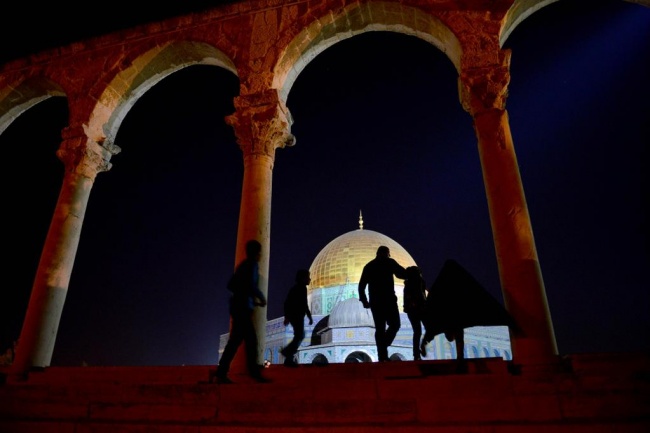(Reuters) -
High-level discussions are under way to more closely involve Arab states
in the work of the Middle East Quartet and reinvigorate the four-member
group that has been seeking to mediate in the Israeli-Palestinian
conflict since 2002. Rather than formally expanding the Quartet's membership, the idea is to have more frequent top-level meetings with at least Saudi Arabia, Jordan and Egypt
to ensure the region is better engaged at a time of tumultuous change,
according to senior diplomats based in the Middle East and Europe. Federica
Mogherini, the European Union's foreign affairs chief, is expected to
appoint a special envoy to the Middle East in the coming days. Officials
said a first meeting of the Quartet - comprising the United States, United Nations, the EU and Russia - along with Arab countries and perhaps the Arab League could take place in the coming weeks. Israeli-Palestinian peace talks, envisaging a Palestinian state in territory Israel
captured in a 1967 war, collapsed in April last year after nine months
of largely fruitless discussions sponsored by the United States. "The
important thing is that there will be an outreach to those countries,"
said a European diplomat briefed on the proposals. "There is an
understanding that peace between Israelis and Palestinians must be
embedded in a broader regional concept and for that you need neighboring
Arab countries. "It's very difficult to say at the moment what format this will take because there are too many unknown factors." No
concrete plan is expected until after Israel's March 17 election, but
U.S. and U.N. diplomats have made clear that they are open to the idea.
It is not clear where Russia, long an outlier in the Quartet, stands. While Israel
has not given the Quartet prominence in the past, preferring to have
close ally Washington lead negotiations, Prime Minister Benjamin
Netanyahu has spoken of a need for a common approach with states in the
region, especially given a rising threat from Islamic State insurgents. Robert
Serry, the U.N. special coordinator in the region, said he would
welcome enlargement of the Quartet, which he described as "leaderless". "When
the Quartet was having (its last) meeting on a high level, it was
agreed that in any renewed Quartet activities to support the peace
process, countries like Jordan, Egypt, Saudi Arabia and others need to be more closely associated," Serry told Reuters. As
well as those three states, officials have mentioned possible
involvement of the United Arab Emirates or Qatar, two wealthy Gulf
states that are now significant regional players. Former
British prime minister Tony Blair has served as the Quartet's chief
representative since 2007 and recent talk of him stepping down has been
denied by officials close to him. They say he is committed to the role
and has no plans to leave.
EU seeks to bolster Middle East peace Quartet via Arab involvement

Reuters















Comments About This Article
Please fill the fields below.